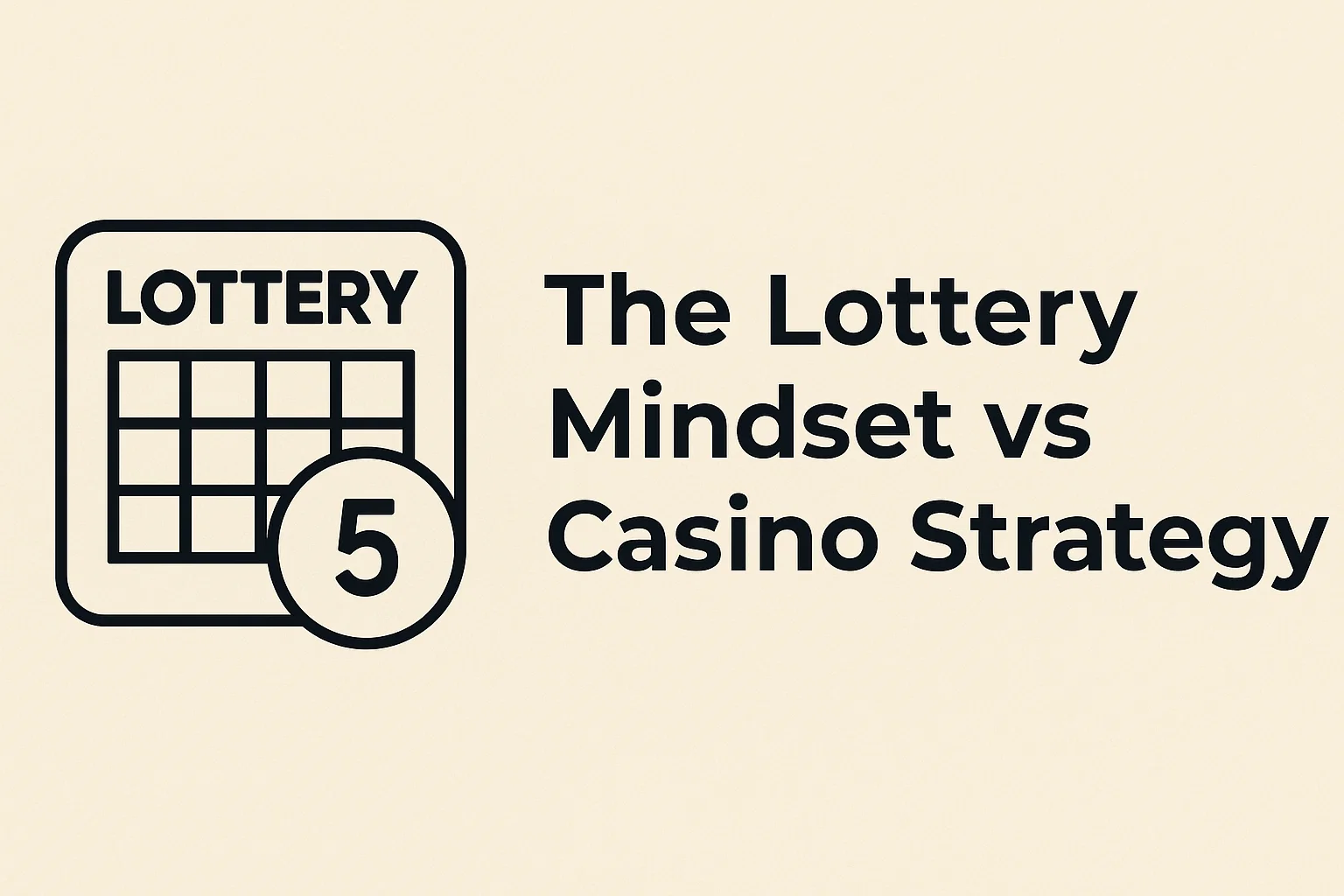The Lottery Mindset vs Casino Strategy

Overnight riches, and gamblers placing themselves at casino tables in hopes of solid returns from established games. Americans still illustrate which side wins out. This year, they bet $113.3 billion on lottery tickets, nearly doubling the $49.8 billion casinos held from slots and tables.
When numbers this large slope so heavily towards the lottery, the imbalance serves to illustrate how mankind is drawn more to optimism than math. That bias explains why improbable jackpots glow with more brilliance than calculable percentages that govern casino action, and psychology, not probability, dictates where most money goes. So, carefully read our guide.
Chasing Lightning Strikes
The lottery is marketed as a game of chance but its real force comes from the fantasy that it peddles. All promises of wealth come with odds so vast that fulfillment is virtually impossible.
The ticket is purchased in hopes the improbable numbers will all coincide and turn a handful of dollars into a fortune to alter a life. The players realize the chances are against it but are satisfied with the promise of momentary transformation to circulate tickets in the billions.
The allure of a lottery ticket is the dream of immediate wealth, whereas those who turn to legalized websites such as those on this list of the best Georgia online casinos, or those in other countries, are drawn by steady advantages such as greater game choice, advertising incentives, and instant payout of winnings that invite frequent play over the possibility of a one-in-a-million top prize. This dichotomy sets the stage for explaining how two forms of play engage contrary drives: fantasy and calculation.
The Psychology of Overweighting Odds
Though lottery mentality seems lunacy on the surface, decades of studies of human behavior explain why it persists. Psychologists explained this bias with prospect theory, decades-old research on decision-making that shows how people always overestimate rare probabilities and underweigh likely ones since anomalous jackpots evoke more feeling and hopes than steady, normal prizes. The same mindset keeps lottery tickets in use despite mathematics.
- This explains why lottery spending overwhelms the casino industry.
- One-in-hundreds-of-millions chances still excite more than a game in which outcomes are predictable and the edge is obvious.
- The chance at one, life-altering jackpot is psychologically more appealing than the guarantee that profits will nearly always be in the red.
Inside casinos, the stakes are moved to mathematics, with customers referred to as grinders determined on odds, expected value, and the strength of repetition. To these players, consistent winnings are preferable to the dream of miracles, and probability mathematics is preferable to the emotional pull of improbable jackpots.
Where Casinos Stand Out
Not based on raw luck, casino economics are built on quantity rather than jackpot theatrics. The model is based on millions of small wagers placed over and over, all governed by a mathematical edge that keeps the house skimming a slice off every dollar.
By most recent casino slot statistics, as provided by official Nevada Gaming Control Board reports and reported by American gambling research publications, slot machines averaged 7.2% during the year. The figure shows that casinos gain not from rare windfalls but from a sustained margin added cumulatively, which is a paradigm that rewards persistence rather than luck.
Billions Through Consistency
At the sectoral level, compounding of thin margins produces gigantic sums. Each roll, spin, or hand produces a base that cumulatively adds up and gets translated by casinos into steady streams of income.
Nevada's record gaming revenue of $15.6 billion illustrates how the steady margins highlighted above compound when considered on a full state level. The figure confirms that steadiness, rather than volatility, drives the health of the gaming business.
Commercial casinos at the national level produced almost $72 billion. The lottery absorbs more raw spend, but casino revenue possesses a type of stability unique from that one founded on the inevitability of percentages cycling on forever as compared to the distant prospect of an extraordinary prize.
What Winning Really Means
When limited to the player's perspective, the definition of a win is quite different for the lottery and the casino. For the consumer of the lottery, winning is overcoming monumental odds to win a jackpot that changes one's life. The attraction is not in regular play but in the hope that some single ticket can be the winner.
In casinos, wins are lesser but frequent. A winning session in a slot or a winning run at a blackjack table gives instant returns, but are usually canceled out by final losses. Nevertheless, the setup allows the players to be engaged in results repeatedly, rather than risking their hopes on one drawing.
The difference is not between whether one of them pays more but about what the player wants. The lottery offers fantasy; casinos offer repetition. Having an awareness of that dichotomy is vital for anyone who steps into either space, because it causes one to think if they are seeking a fantasy or playing the probabilities.